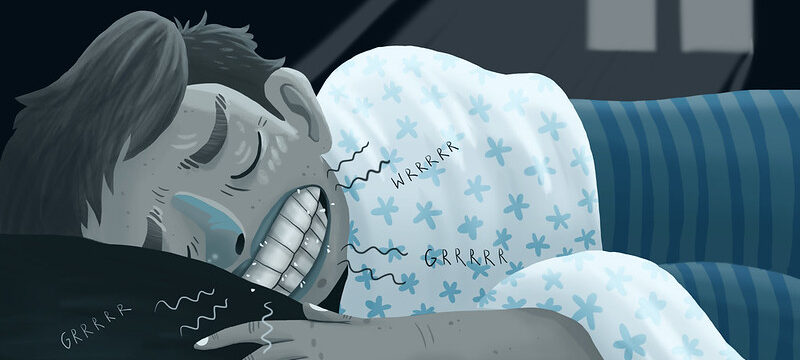
Occasional teeth grinding and clenching isn’t likely a big deal since it is only now and then. But some people experience chronic teeth grinding that occurs most or every night. Teeth grinding, or bruxism, can damage your teeth, lead to jaw issues, and cause facial pain, teeth sensitivity, and headaches.
What Causes Teeth Grinding?
To stop grinding your teeth at night, it’s important to figure out what is causing the issue so you can make certain adjustments. Identifying the cause of your teeth grinding can also help your healthcare providers recommend the best treatment for you.
Extreme stress is a common cause of teeth grinding. For some patients, teeth grinding is a sign that they’re experiencing sleep apnea or another sleep disorder. Teeth grinding can also occur if the jaw and/or bite are misaligned.
What Are the Warning Signs of Teeth Grinding?
Teeth grinding or clenching can be loud enough to wake up your sleep partner. It can also damage your tooth enamel, leading to sensitivity or pain. Sometimes, teeth grinding is powerful enough to fracture or chip your teeth. Teeth grinding can also cause an earache or soreness in your jaw, neck, or face.
How to Stop Teeth Grinding at Night
At Seaport Family Dentistry, we offer several treatment solutions that can ease your pain, including custom nightguards that protect your teeth from damage. For headache relief, we often recommend a cutting-edge dental device called the NTI-TSS (Nociceptive Trigeminal Inhibition-Tension Suppression System). Each of our dentists is also trained in the use of BOTOX®, which can relieve migraines and tension headaches.
The first step in getting relief from the uncomfortable side effects of teeth grinding is to schedule a consultation with our team. We’ll go over the various treatment options and determine which solution is the best fit for you. To ask us any questions or to schedule an appointment, contact us today!
Teeth grinding image from Authority Dental under CC 2.0